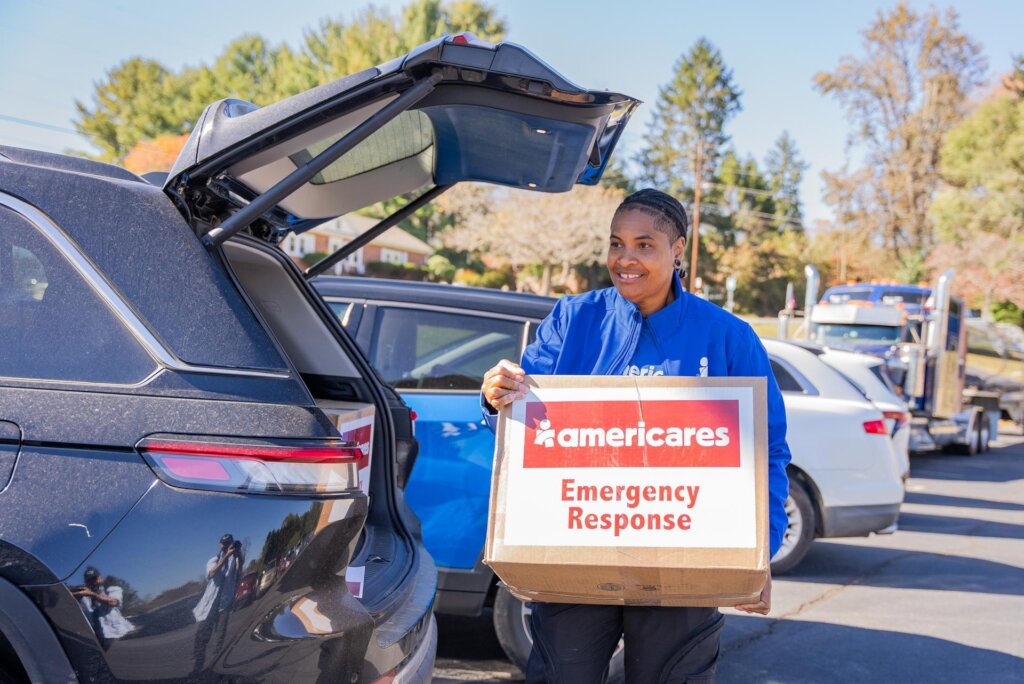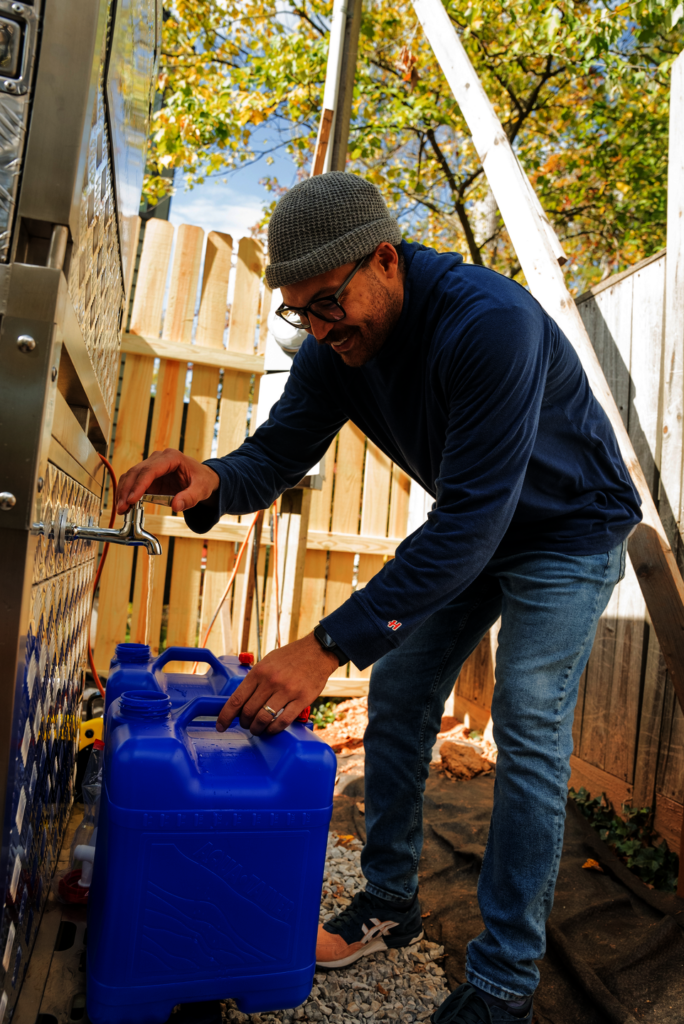By Lauren Rutledge | Senior Manager
Hurricane Helene
Hurricane Helene made landfall as a Category 4 storm on September 26 on Florida’s Gulf Coast, with strong winds, heavy rains and a destructive storm surge that flooded communities. Over the next two days, the storm continued north, with heavy rains that triggered flash floods and caused rivers to overflow, resulting in catastrophic flooding from Georgia to western North Carolina and Tennessee, washing out roads and bridges and flooding entire communities. Before Helene made landfall, Americares emergency experts reached out to more than 360 partner clinics with offers of assistance.
The scope of Helene’s destruction became clear in the days that followed: With unpassable roads and widespread power outages, damaged communities were isolated. In the immediate aftermath of the storm, as many as 4.5 million customers were without power. A week after the storm, news outlets were reporting more than 200 people had died throughout the Southeast and more than 750,000 remained without power. Communities throughout western North Carolina are still without potable water weeks after the storm.
Our Response
Americares response teams have been on the ground in Florida, Georgia, North Carolina, South Carolina and Tennessee, focused on the health needs in the hardest-hit communities. Americares is coordinating deliveries of medicines and relief supplies, providing mental health support and supporting the restoration of health services.
“Helene was one of the most destructive storms western North Carolina and Tennessee have seen in decades,” said Americares U.S. Director of Emergency Response Mariel Fonteyn. “Americares responded immediately and will be there to support the physical and mental health needs in the months ahead.”
Americares has shipped more than 16 tons of medicine and relief supplies to partner organizations in affected areas, including 1,300 bottles of infant formula and 3,800 tetanus vaccines to protect survivors cleaning up the damage. The aid deliveries also include diabetes medicine, antibiotics and hygiene kits. In addition, Americares has installed four water purification systems for communities without running water in partnership with Planet Water Foundation. Combined, the AquaBlock water systems—three in Asheville and one in Swannanoa—have the capacity to produce up to 17,000 gallons of safe drinking water a day for thousands of hurricane survivors in Buncombe County. Americares also coordinated deliveries of bottled water donated by BlueTriton Brands to Florida, Georgia and Tennessee.
Americares mental health and psychosocial support staff are partnering with health organizations and community groups in North Carolina and Georgia to provide psychological first aid and individual and group support to survivors, many of whom have experienced significant trauma and loss. Among these survivors are health workers and first responders who continue to support their communities while navigating their own recovery process. Additionally, Americares disaster mental health specialists are offering psychoeducation sessions, equipping them with effective coping strategies to manage stress and begin building psychological resilience.
To help meet immediate health needs of survivors, an Americares mobile medical clinic was deployed to western North Carolina. The clinic’s medical doctor and nurse diagnosed health conditions, prescribed medicine, provided tetanus vaccine and referred patients to local health facilities for treatment if needed.
Americares is also providing emergency funding to support access to essential health services in the hardest-hit areas. More than $1 million has been awarded to 28 partner organizations. This funding will allow these organizations to repair storm damage, remove downed trees blocking access to health facilities, fund transportation for health center staff, replace damaged medications and support other storm-related expenses.
In one badly damaged town in southern Georgia on Monday, Sept. 30, staff at a local clinic told the Americares team they were the first organization to offer help.
And at the lone hospital serving Taylor County, Florida, health facility staff were at work three days after Helene devastated the region. “We met health care providers continuing to serve their communities despite losing everything they own,” says Americares Emergency Response Team Member Kennedy Caskey. “With so much devastation and loss, the long-term mental health needs are going to be immense.”
Hurricane Milton
Category 3 Hurricane Milton slammed into Florida’s Gulf Coast on Oct. 9 with torrential rains, storm surge and destructive winds. The storm also spawned deadly tornadoes across the state. The damage was widespread: Millions were left without power, floods inundated communities and winds ripped apart homes and businesses. Hurricane Milton is the third hurricane to make landfall on Florida’s west coast in just 13 months, and many communities were still recovering from previous storms when Milton swept across the state.
Our Response
Americares response to Hurricane Milton included critically needed medicine and relief supplies as well as emergency funding to help partner organizations in Florida meet the health needs of survivors.
Americares emergency funding is helping one local health provider expand its hours of operation to manage the more than 6,000 appointments missed in the aftermath of the storm – forestalling what can be dangerous delays in medical care. And, for another local partner, the funding will expand mental health outreach and referral in communities that have not fully recovered from Hurricane Ian.
In advance of the storm, Americares reached out to 110 partners in Florida to offer assistance. One clinic had already requested relief supplies when Milton made landfall.
Americares responds to more than 35 natural disasters and humanitarian crises worldwide each year, establishes long-term recovery projects and brings preparedness programs to communities vulnerable to disasters. The organization has a long history of responding to flooding and major storms in the southeastern United States, including Hurricanes Florence, Ian, Idalia and Michael in recent years.
Links:
Project reports on GlobalGiving are posted directly to globalgiving.org by Project Leaders as they are completed, generally every 3-4 months. To protect the integrity of these documents, GlobalGiving does not alter them; therefore you may find some language or formatting issues.
If you donate to this project or have donated to this project, you can receive an email when this project posts a report. You can also subscribe for reports without donating.
Support this important cause by creating a personalized fundraising page.
Start a Fundraiser

